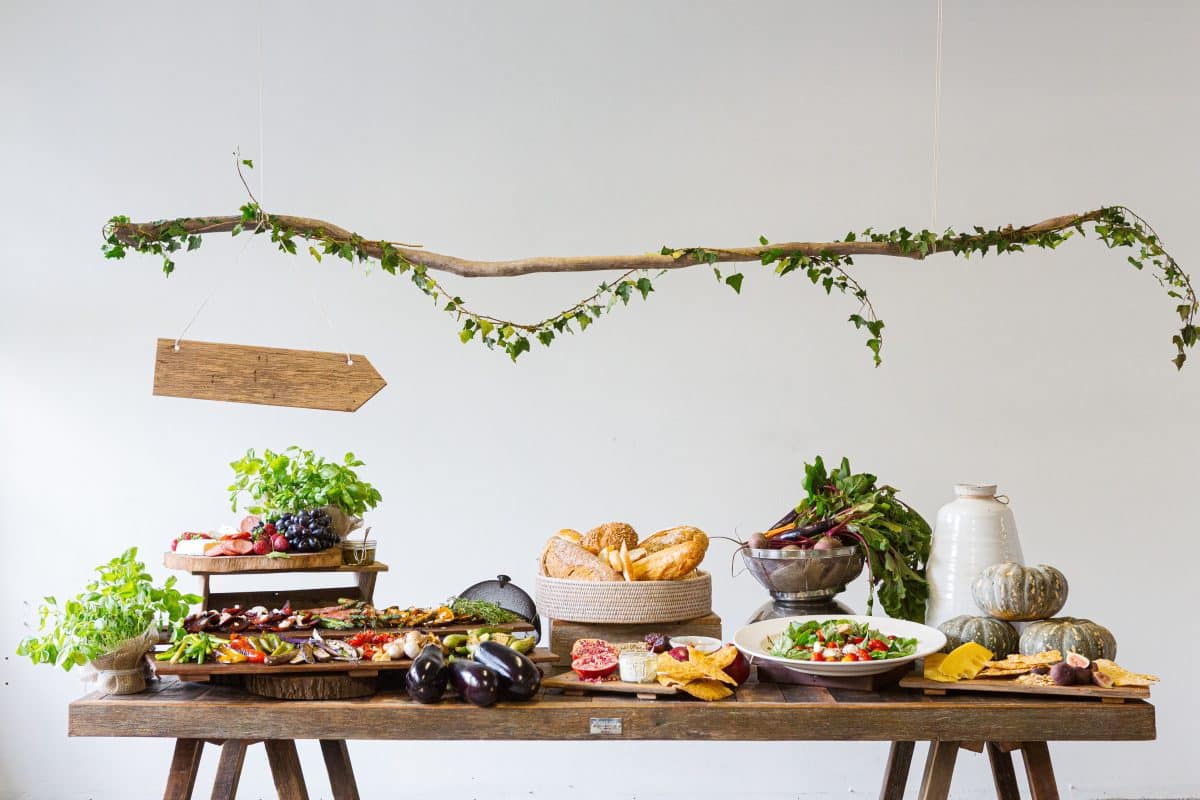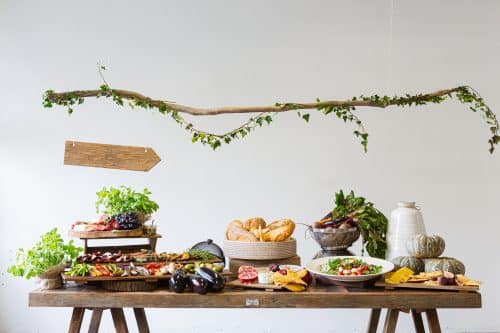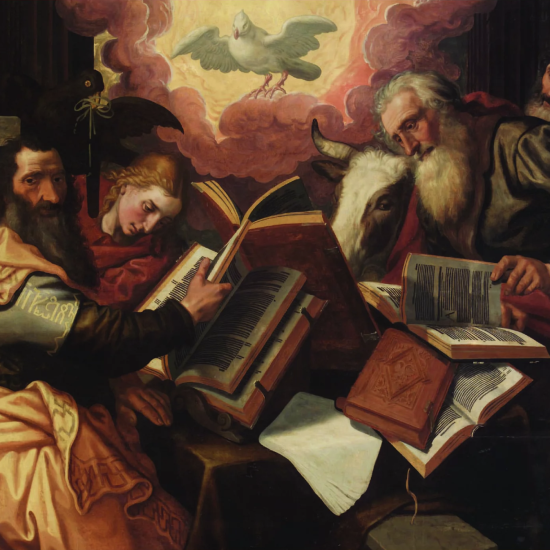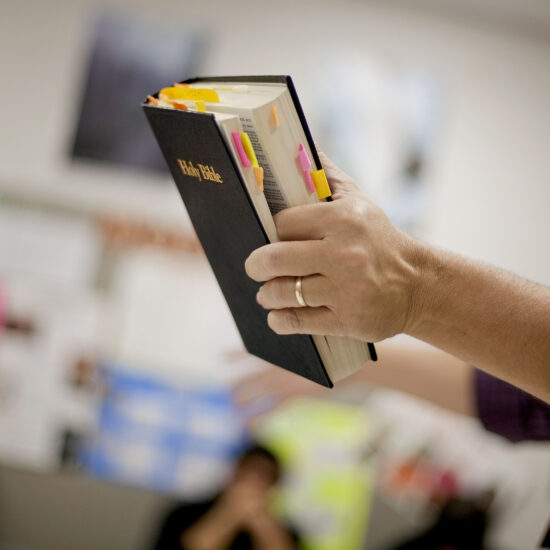
Blessed are the poor in spirit, for theirs is the kingdom of heaven.
–Matthew 5:2
Ten years ago, I went through an 18-month period of unemployment. Besides grieving my loss of a “seat at the table,” I experienced a great deal of financial uncertainty and stress-related health issues. I was also single, so I didn’t have a partner to lean on for emotional or financial support during that hard year-and-a-half. But while it was the worst of times, it was also the best of times. Stripped of the distractions of material prosperity, I also experienced the closeness and solidarity of God, as well as a spiritual richness that changed my life forever.

Juliet Vedral
Eventually, I found a job, but it was harder to put my life back together than I’d hoped. I was a different person now. I had experienced the kingdom of heaven in my daily life. I had money to pay my rent and buy food and pay bills. I was “winning” by all measures, but it felt like I had lost something.
Looking back, I wish that I had Alicia Akins’ new book, Invitations to Abundance: How the Feasts of the Bible Nourish Us Today, to spark my imagination during that hard period. The book describes 12 feasts in the Bible, ranging from liturgical feasts such as Passover, Shavuot, and Sukkot, to the tables featured in Psalm 23 and Proverbs. Besides the book’s rich theological content, it is a gorgeous work of literature – a feast in and of itself. At the end of each chapter, Akins writes a liturgical response that allows the reader to “accept” the invitation offered. Not only would the book have nourished my hurting soul, but it would also have provided helpful counterweights to an American Christianity infused with a preferential option for the rich and an American culture that prefers winners to losers.
“When my agent first asked me about my intended audience for the book, I said, ‘people who are old enough to be disillusioned and a little bit weary,’” Akins told me during a recent conversation. “Which was in early 2020. And I’m like, well now that’s everyone, everyone, come all, you know? It’s not a book for people who are just really happy to have everything that they ever wanted. It’s a book for people who are figuring out how to live full lives, experiencing God’s goodness in the in-between.”
For a good number of us, the past two years have been filled with loss, weariness, and disillusionment. There are so many articles articulating who is “not okay,” but honestly, I’d be surprised if anyone is “okay” right now.
I wouldn’t blame anyone for questioning the goodness or even existence of God in the wake of all the death, suffering, anger, injustice, and pain we’ve borne witness to in such a short time. After all, if God is all-powerful, why isn’t God doing something about this? Pat spirituality, which seemed so certain and robust in 2019, feels flimsy and feeble in 2022.
Akins’ book comes back to this question again and again, asking us to imagine God providing feasts in the midst of our lack. When we let God’s feasts nourish us, we are fortified against life’s seasons of affliction and adversity.

Luisa Brimble / Unsplash
“I don’t want to just believe that God’s big and great when it looks like he’s winning and then switch teams when it looks like he’s losing. And so I think being able to find him when it looks like he’s losing, when it looks like I’m losing, has become really important to me.”
The story of Akins’ book also begins with a season of unemployment and financial distress, including having her identity stolen. During that time, she was invited to a friend’s house for Thanksgiving. The icebreaker question that was put to the group was, “what makes you rich?” Akins found herself describing the ways God kept showing up in the midst of her suffering. The following Thanksgiving, that same friend asked her to write a blessing for the meal. As she worked on it, she came back to Jeremiah 31:14, “I will feast the soul of the priests with abundance, and my people shall be satisfied with my goodness, declares the Lord.” (ESV)
“I just got really fixated on this verse,” she told me. “What does it mean to ‘feast someone’s soul’? And then I looked at the word for abundance and it really meant fat. And I was like, well, why does fat mean abundance? And so I went off on this tangent of looking up, ‘what’s the role of fat in the Bible?’ And so I think the book came from two things: an understanding of God’s goodness to me during a time of scarcity and this interest in fat and food imagery in the Bible.”
Eventually, Akins found gainful employment and also became a deaconess at her church in Washington, D.C. In that role, she found the “feast of mercy” as described in Luke 14 particularly powerful. The idea of inviting guests to a party when they can’t pay you back is one that runs counter to the way the world works. “I think it’s especially relevant because our world really is driven by status and reciprocity in ways that maybe we don’t always admit.”
What Invitations to Abundance does exceptionally well, is to reveal in chapter after chapter, a God who extends grace to guests who can never reciprocate. This God is not miserly and dour but is also not some kind of genie offering us goodies upon request. This God chooses to reveal the divine through the language of lavish parties, ultimately offering Godself for our nourishment. This book is itself an invitation to know this abundant God more deeply.
Juliet Vedral is a writer, toddler-and-baby-wrangler, and amateur shoe collector. She is the co-founder and editor of The Wheelhouse Review. Her writing has also appeared in Sojourners and Radiant. A native New Yorker, Juliet currently resides in Alexandria, VA, which is still a weird thing for her to say.






